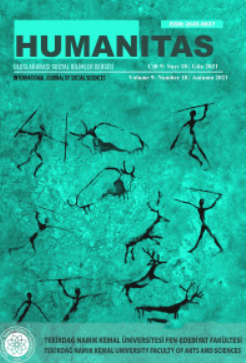Momotaro Masalı Örnekleminde Japon Kültüründe Kolektif Bilinçdışı Unsurlar
Collective Unconscious Elements in Japanese Culture in the Sample of the Momotaro Tale
Author(s): Fatih Ege, Levent ToksözSubject(s): Cultural history, Customs / Folklore, Comparative Study of Literature, Other Language Literature, Theory of Literature, American Literature
Published by: Namık Kemal Üniversitesi Fen-Edebiyat Fakültesi
Keywords: Tale; collective unconscious; archetype; monomite; Momotaro;
Summary/Abstract: Anonymous genres, which are among the productions of folk literature, have shaped the foundations of language and literature by transferring cultural codes from generation to generation. Fairy tales, one of the anonymous genres, differ from other literary genres both in terms of their functions and the values they transmit. One of the methods used to analyze fairy tales today is Carl Gustav Jung's theory of the “collective unconscious”. Jung tries to explain cultural codes and the spiritual accumulation of humanity that we have mentioned as what he calls "archetypes". In this study, we have attempted to determine the archetypes in the fairy tale Momotaro, which has an important place in Japanese culture. The identified archetypes include Joseph Campbell's “Hero’s Endless Journey”; classified within the framework of the concept of monomyth.
Journal: Humanitas - Uluslararası Sosyal Bilimler Dergisi
- Issue Year: 9/2021
- Issue No: 18
- Page Range: 53-73
- Page Count: 21
- Language: Turkish

